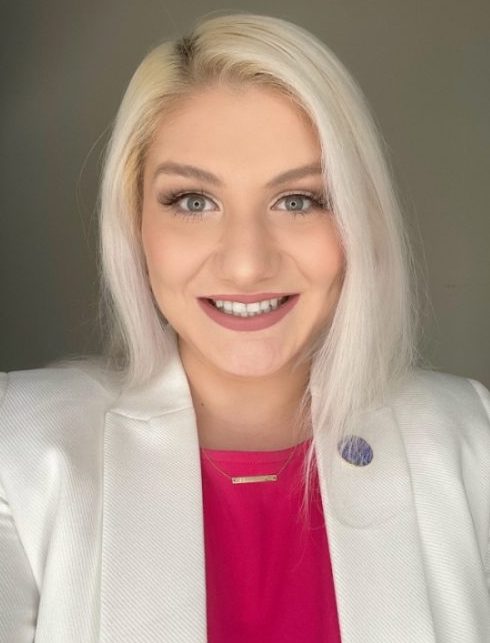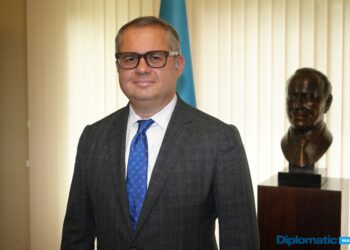Welcome to an exclusive interview featuring Isabelle Vladoiu, the accomplished Founder of the US Institute of Diplomacy and Human Rights (USIDHR). Isabelle’s illustrious journey commenced with her pursuit of legal studies, spanning two continents in pursuit of advanced degrees.
Today, she stands as an internationally recognized Human Rights Specialist, propelled by a profound commitment deeply rooted in her Romanian heritage. Witnessing the transformative effects of constitutional shifts and EU integration, Isabelle found inspiration to champion the cause of human rights advocacy. As the driving force behind USIDHR, Isabelle has personally guided over 15,000 individuals and companies, earning commendations from two U.S. Presidents.
This interview explores Isabelle’s innovative approaches to impactful education, diplomatic protocol, NGO diplomacy, and nonprofit coaching. Join us as we uncover Isabelle’s unique insights on fostering global understanding, economic diplomacy, and the delicate balance between effecting positive change and nurturing international relations. Learn how Isabelle’s steadfast dedication to human rights, diplomacy, and nonprofit coaching has resulted in prestigious accolades, and find out about the ambitious goals she envisions for the future. Excerpts:
Can you share about your journey in becoming an international human rights specialist and the founder of the US Institute of Diplomacy and Human Rights? What motivated you to pursue a career in this field?
My journey began with graduating from law school, then pursuing two Master’s degrees—one in Europe and another in America, where I graduated with honors from the University of Buffalo, New York.
What sparked my passion for human rights was witnessing the impact of a repressive regime’s remnants in Romania. Seeing how people suffered due to rights violations motivated me deeply. Also, watching my country change for the better, adopting a Constitution that protected fundamental rights and joining the European Union, inspired me to advocate for human rights.
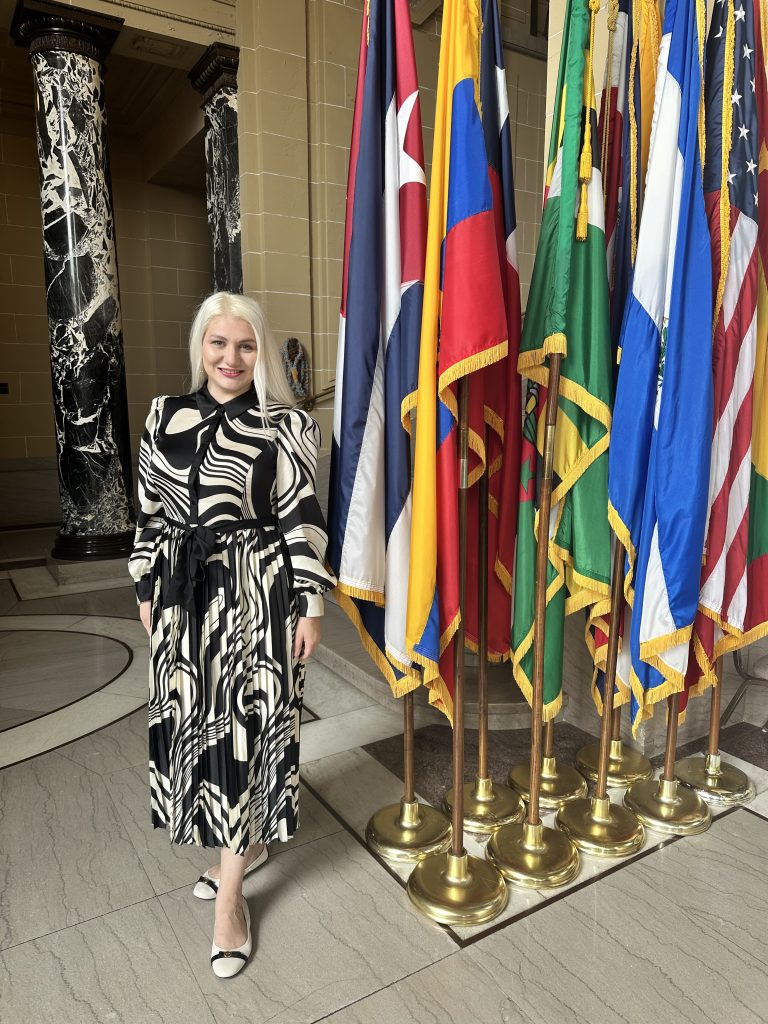
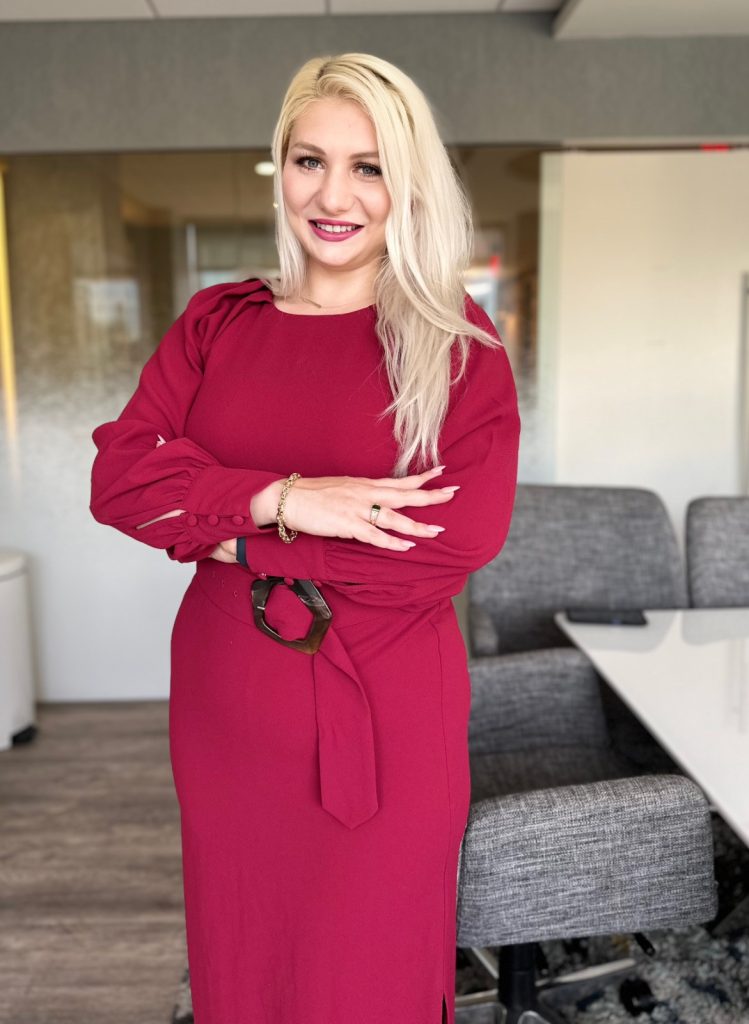
You have trained over 15,000 individuals and companies in human rights education, human trafficking prevention, DEI, and global security. How do you approach the training to ensure it is effective and impactful?
My courses are designed to be interactive, incorporating instructional education and ample opportunities for discussion. I adopt a hands-on approach, eschewing legal jargon and rigid textbook teaching. Instead, I prioritize simplicity, using visuals, videos, and real-life case studies to make the content relatable and understandable. I firmly believe that people learn best through practical examples and experiences. Hence, I draw extensively from my practice as a Human Rights Specialist. I never introduce a concept or principle that I haven’t encountered firsthand. Ultimately, the key to impactful training, in my view, lies in making the content accessible, relatable, and applicable to real-life situations. It’s not just about disseminating information; it’s about empowering individuals with practical knowledge they can use to make a difference in their spheres of influence.
Your expertise has been recognized by two U.S. Presidents, and you’ve received prestigious awards, including the President’s Volunteer Service Award and a Lifetime Achievement Award from President Biden. How do these accolades influence and inspire your work in the field of human rights?
Being one of the youngest international Human Rights Specialists to receive two awards from American Presidents is a testament to my internationally recognized work. These accolades serve as symbols of encouragement and inspiration, not just for me but for other youth, emphasizing the value of dedication to positive change.
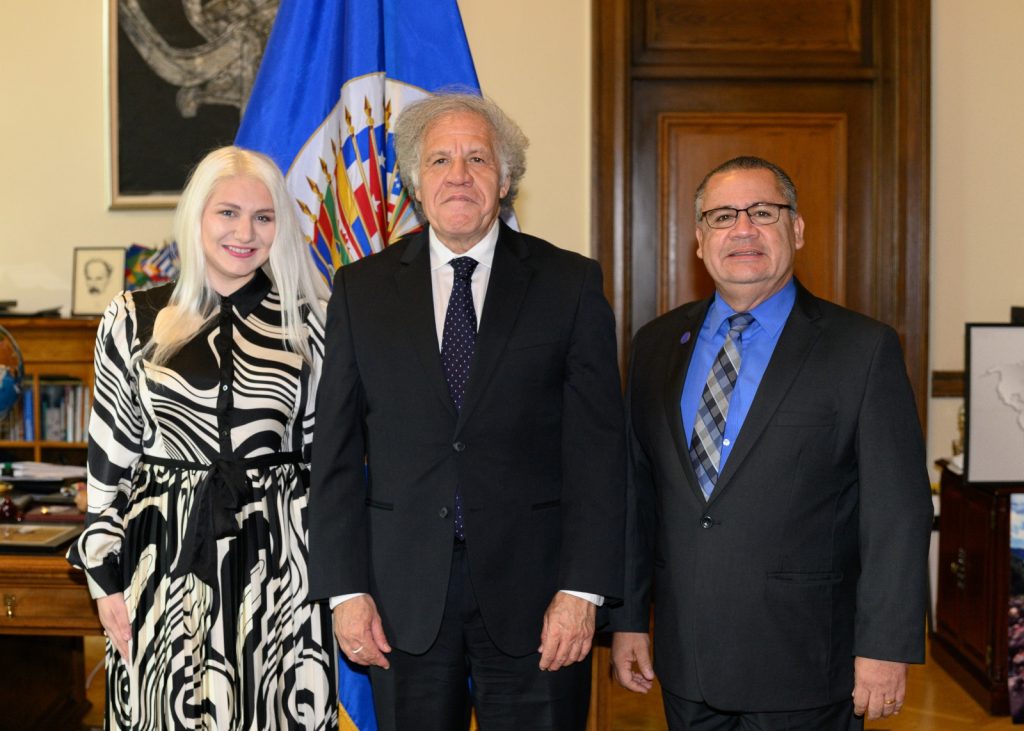
Moving to your role as a diplomatic protocol expert, how has your experience in NGO diplomacy contributed to promoting economic diplomacy as a prerequisite for sustainable development?
In my NGO diplomacy role, I’ve spearheaded collaboration among diverse businesses, advocating the integration of Sustainable Development Goals (SDGs) into corporate strategies. Emphasizing human rights and social responsibility within organizations not only enhances their ethical standing but also significantly boosts financial performance.
Numerous studies consistently underscore the economic benefits when businesses prioritize human rights and social responsibility. These companies not only attract conscious consumers but also cultivate more engaged workforces, leading to sustained growth aligned with SDGs. Through my experience, I’ve witnessed firsthand how businesses thrive by aligning with SDGs. Guiding these endeavors, I’ve witnessed a convergence where economic success intertwines with sustainable development, advancing impactful change and fostering a more equitable and prosperous global community.
As the Lead Instructor for Diplomatic Protocol and Etiquette training at the US Institute of Diplomacy and Human Rights, what key principles do you emphasize, and how do these contribute to fostering mutual respect and understanding in diplomatic relations?
As the Lead Instructor for Diplomatic Protocol and Etiquette training, I emphasize several key principles that foster mutual respect and understanding in diplomatic relations. Key among these is the importance of cultural sensitivity and adaptability. Understanding and respecting diverse cultural norms and practices form the cornerstone, enabling diplomats to engage authentically and respectfully across borders.
Moreover, I emphasize effective communication strategies, promoting active listening, and diplomatic language usage that transcends cultural barriers. By instilling the value of empathy and diplomacy, our training cultivates a nuanced understanding of various perspectives, enhancing mutual understanding.
Your course has been graduated by many Ambassadors, diplomats, and NGO leaders. How do you adapt your training to meet the diverse needs of participants from different cultural backgrounds and diplomatic contexts?
To address the diverse needs of participants from varied cultural backgrounds and diplomatic contexts, I employ a multifaceted approach in my training. Utilizing interactive videos and engaging case studies, I create a dynamic learning environment that resonates with diverse perspectives.
These interactive tools allow participants to witness diplomatic scenarios firsthand, navigating cultural intricacies and diplomatic challenges in real-time. Through these simulations, individuals can practice and refine their skills in handling diverse diplomatic contexts, fostering adaptability and cultural competency.
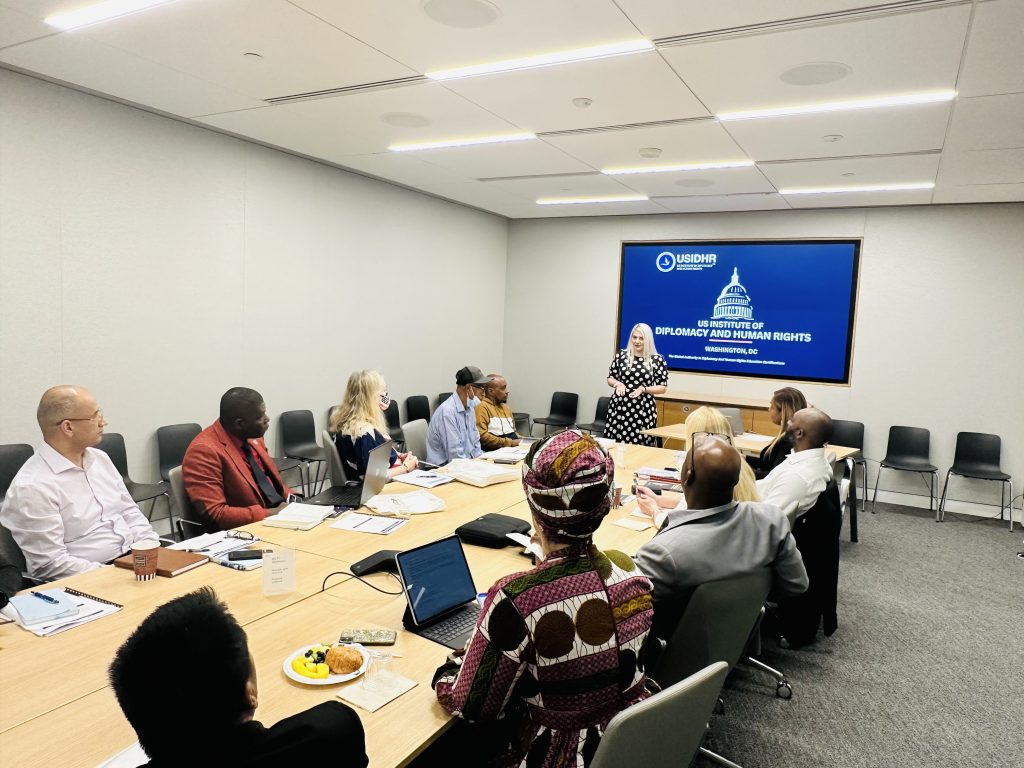
Furthermore, I encourage open discussions and interactive sessions, encouraging participants to share their experiences and perspectives. This exchange of insights contributes to a rich learning environment where cultural diversity is not just acknowledged but celebrated, enriching the training experience for ambassadors, diplomats, and NGO leaders alike.
As a nonprofit coach, you’ve helped numerous entrepreneurs and aspiring leaders start and grow their nonprofit organizations. What common challenges do these individuals face, and how does your Accelerator Nonprofit program address these challenges?
Absolutely! Starting a nonprofit is like baking a cake. It’s not just about having the ingredients; it’s about the order and sequence. Many leaders I coach come with fantastic ideas but struggle with the step-by-step plan. We focus on the right sequence—defining a clear mission and vision, the essential first steps in this ‘recipe’.
Then comes revenue. Grants are just one ingredient; we work on diverse revenue strategies, not putting all eggs in one basket. Many focus solely on grants, but we explore other avenues. Nonprofits need more finesse and care, like creating a masterpiece cake. It’s about the right blend of ingredients, in the right order, to make it both impactful and sustainable.
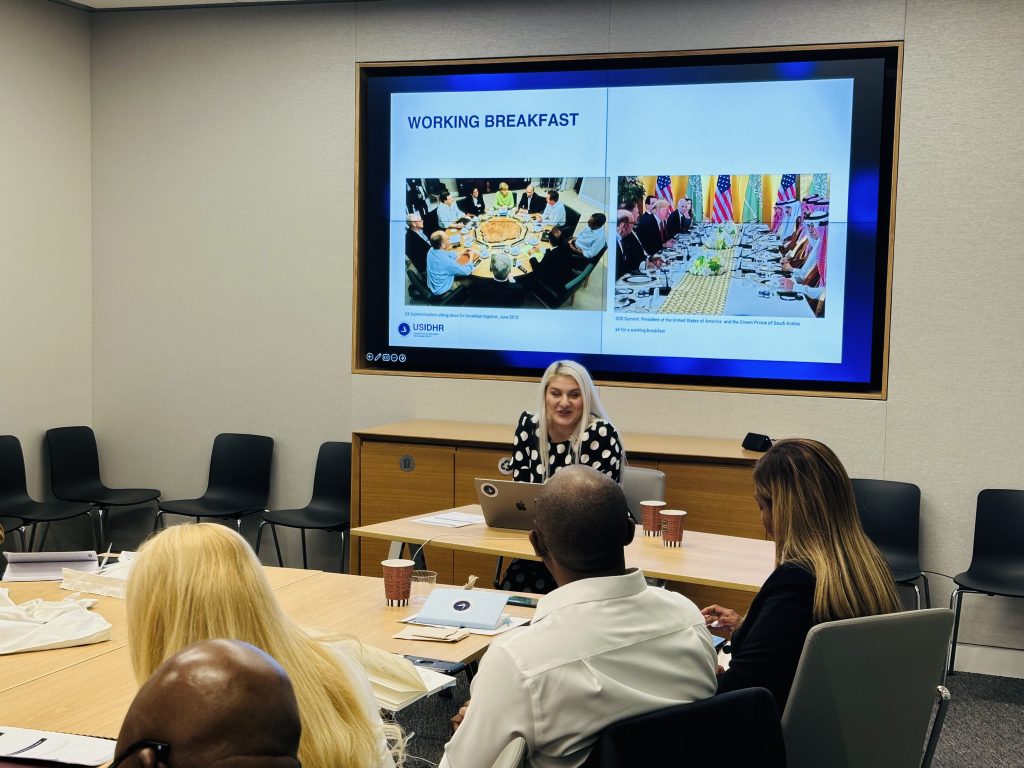
In your coaching role, how do you balance the goal of making a positive impact on communities and the world with promoting economic and diplomatic relations between nations?
My goal is twofold: fostering community impact and nurturing international relations. I strike this balance by emphasizing that nonprofits can be global catalysts for change. I guide organizations to focus on their local impact while showcasing how their work aligns with broader global goals.
What advice would you give to individuals aspiring to make a difference in the world through nonprofit work?
For those aspiring to create change through nonprofits, my advice is to begin with a passion-driven cause, educate themselves on successful models, strategically plan their mission and vision, build collaborative networks, maintain flexibility, prioritize sustainability in operations, measure impact consistently, seek guidance and support, cultivate resilience in the face of challenges, and celebrate every milestone achieved along the journey.

What does receiving the Jacobs-Abbey Global Institute for Leadership Studies Lifetime Achievement Award mean to you, and how will it impact your work in human rights, diplomacy, and nonprofit coaching?
Receiving the Jacobs-Abbey Global Institute for Leadership Studies Lifetime Achievement Award is incredibly humbling. It highlights the value of collective efforts in human rights, diplomacy, and nonprofit coaching. This honor deeply inspires and reaffirms my dedication to these causes, motivating me to persist in advocating for human rights and fostering diplomatic ties. The recognition reinforces my commitment to guiding nonprofits toward impactful growth, albeit with a heightened sense of responsibility. I am truly grateful for this acknowledgment, and it strengthens my resolve to serve these vital domains with even greater dedication and humility.
Looking ahead, what are your future goals and aspirations in the fields of human rights, diplomacy, and nonprofit coaching?
In the realms of human rights, diplomacy, and nonprofit coaching, my future goals center on expanding educational outreach. I aim to broaden access to human rights education globally, empowering more individuals and organizations with knowledge and tools for advocacy.
Additionally, I aspire to foster deeper international collaborations, bridging diplomatic gaps for enhanced global understanding.
In nonprofit coaching, my goal is to create more tailored programs, addressing the evolving needs of aspiring changemakers. Ultimately, I envision a continued commitment to advancing these interconnected fields, aiming for greater inclusivity, impactful advocacy, and sustainable societal change.

